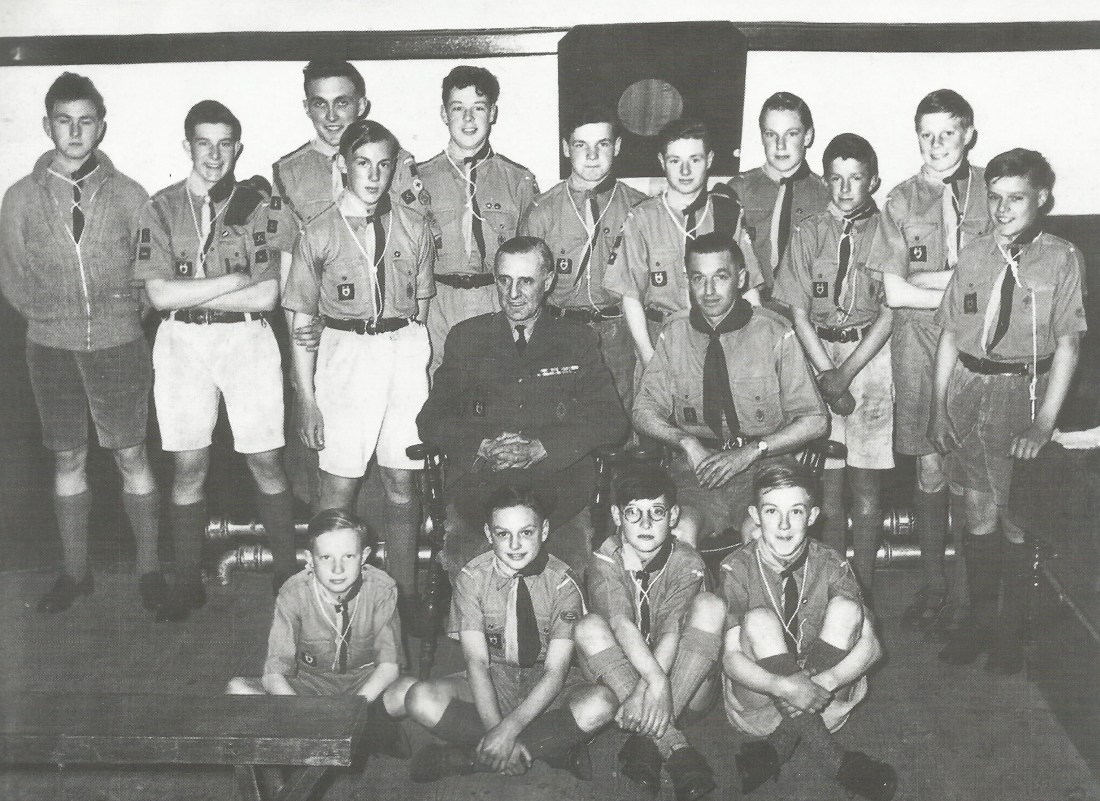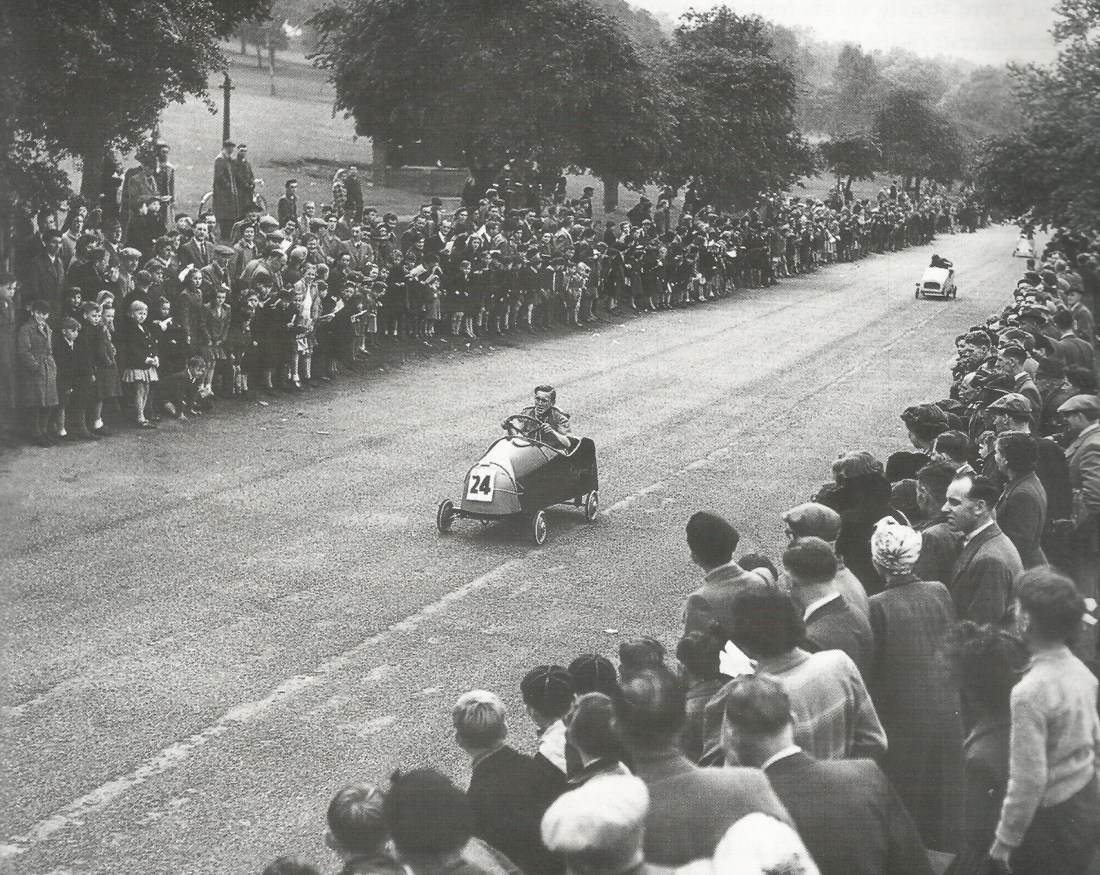Heyford Scouts was formed in 1952. The School headmaster, Mr Woods, was the scoutmaster, ably assisted by Mr Bert Wilkinson. During the 1950s it had a thriving troop of more than 20 boys. The troop was split into several patrols – peewit, kingfisher, etc., each with their own patrol leader, and weekly meetings were held in the school hall.
The Scout Troop in the 1950s

Back row: Terry Randall, Norman Denny, Tony Lovell, David Butcher, Brian Eales, Anthony Hinnick, Colin Haynes, Michael Eales, John Smith, Colin Harrison, John Haynes
Seated centre: Gordon Cabbam, Bert Wilkinson
Front row: Michael Royle, Roger Wilkinson, Richard Danby, Ken Garrett
Photo lent by Mrs Mary Butcher
Gang shows
Gang shows were very much a part of the scout year and were always a great success. They were presented on stage in the church rooms on the corner of Church Street and Church Lane and consisted of the normal songs (such as Ging Gang Gooly) and sketches. Rehearsals seemed to go on for ever and parents must have torn their hair out trying to provide costumes for some of these. The show was sometimes taken on tour for one night only to places as far afield as Flore, and it was just as daunting performing to strangers as to family and friends.
Soap Box Derbys
During my time in the scouts the troop entered the National Soap Box Derby. We built our soap box with a lot of help from Grose’s garage, and to our great delight we reached the national final held in Morecambe. To reach there we had to leave the village at about five o’clock in the morning and didn’t return home until late. The excitement of winning, however, got us through. The ‘car’ was on display for a month in the garage showroom, which at that time was in Marefair where the Barclaycard building is now situated. Boy, were we proud!
David Butcher winning the Soap Box Derby at Morecambe

Photo lent by Mrs Mary Butcher
Camps
From later Spring until early Autumn several weekend camps were held fairly locally, and once a year the annual camp took place. This was always further afield and normally lasted for two weeks. One of these camps took us to the Pendle Hills in Lancashire, and inevitably it was raining when we arrived. After showing us to the field in which we were to make camp, the farmer pointed to the hill behind us and solemnly declared that, “If you can see those hills it’s going to rain, and if you can’t see them it’s already raining.” If memory serves me right we had about one day of dry bright weather in the whole fortnight and I seem to remember using washing bowls to scrape mud away from the front of the tents. No-one suffered any ill effects from this experience however and all returned to the village quite healthy.
During these camps one patrol was responsible for cooking the breakfast each morning and the others all went for an early morning run accompanied by the scoutmaster in order to work up an appetite. Each patrol took it in turns during the week so that nobody missed out on the joys of the run. Breakfast consisted normally of porridge made in a large billycan and coated with golden syrup diluted with hot water. This was followed by bacon and omelette. It was never a surprise if you found a generous helping of grass in either or both courses, but it never had any adverse effects on anybody.
The morning ablutions were always an adventure as we normally washed in cold water. One camp in the Lake District was near to a small stream and this was used by one or two hardy souls.
Street cred
Uniforms were strictly shorts (even the scoutmaster wore them!) and the distinctive hats with the stiff brim, reminiscent of the Canadian Mountie. These were terribly difficult to get flat again once you had bent it out of shape. This often happened, especially at camp.
I spent many pleasant and happy years in the scouts and during that time learned to cook, tie knots (some of which I still use, especially the granny), semaphore and Morse codes (all of which I have forgotten!). I also learned that it was easy to be polite and helpful and that this didn’t damage your street cred. I feel that I am better for the things I did and look back to this time with much pleasure.
Ken Garrett
~~
Extract from “The Story of Heyford” – Local book series published in the late 1990’s
Volume 1 of 4 | Chapter 11 of 13 | Pages 30 to 32

